Khoa said the reason for choosing Taiwan came from his interest in the security and identity themes unique to this place, which is also considered a 'hot spot' in Asia-Pacific.
Learning is a combination of three factors.
Dang Khoa chose two parallel majors, Diplomacy and International Relations (Honors) and Global Politics and Economics at Tamkang University, Taiwan, with the desire to gain a deeper understanding of the politics, culture, and identity of this small island.
For this reason, in addition to studying at the Faculty, he is determined to participate in as many courses, scientific seminars, and programs as possible to improve his academic knowledge. During his studies, the male student also interned at the EU Center in Taiwan to help himself better understand the diplomatic relationship between the two regions, the important role of this relationship, and have the opportunity to connect with many scholars, helping him participate in many discussions and seminars with scholars and delegations of countries.
In particular, the Faculty is honored to have recently been recruited for an internship position at the European Values Center for Security Policy, focusing on research on European and Asia-Pacific security policies such as economic security, human security, and connecting with academic communities, promoting cultural exchanges, and people-to-people diplomacy.
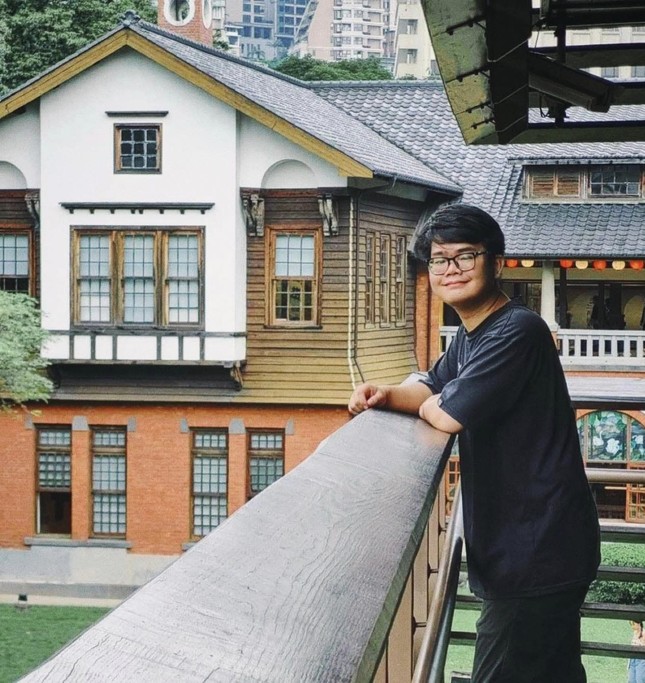
Referring to his outstanding achievements, Dang Khoa said he was the valedictorian of the 2023-2024 International Relations course at Tamkang University, one of the proudest academic achievements in his studies.
For Khoa, learning is a combination of three elements: theory, practice, and specific issues of interest. Accordingly, for majors that heavily rely on social science research methods such as international relations, politics, sociology, anthropology, etc., understanding the core theories and philosophies of the major is fundamental to understanding and grasping more about the issues of the major.
Therefore, during the learning process, Dang Khoa regularly systematizes knowledge about major schools and theories, and concretizes the approaches of scholars to be able to approach problems in the most multidimensional way. In addition, specialized books and monographs will introduce the basic issues, but also cite related academic sources. Khoa sees this as an opportunity to continue to read more deeply about outstanding works and authors in the field.
In addition, practice will help learners reapply knowledge in their studies. One of the subjects at school requires Khoa to write a policy brief. This is also the work assigned to the male student in the internship organization as a policy intern. From there, Khoa also has a better understanding of the processes, templates, and approaches to problems in the reports, helping to make the assignment as practical and close to work as possible.
Finally, interest. Because of the broad nature of the industry, studying too broadly will easily overwhelm you and gradually lose interest in the major. Therefore, in addition to building a solid theoretical foundation, Dang Khoa will choose specialized topics that interest him.
“For me, those topics are constructivism, securitization theory, and some social theories like social constructivism,” Khoa said.
However, Dang Khoa admitted that his learning journey still had many difficulties. The male student emphasized that the main requirement in the major is to grasp the theory systematically and understand the philosophical foundation of the schools. For example, the two biggest theories of international relations, Realism and Freedom, have a close relationship with each other at the level of fundamental hypotheses, something that Khoa only realized after studying the major for more than 2 years.
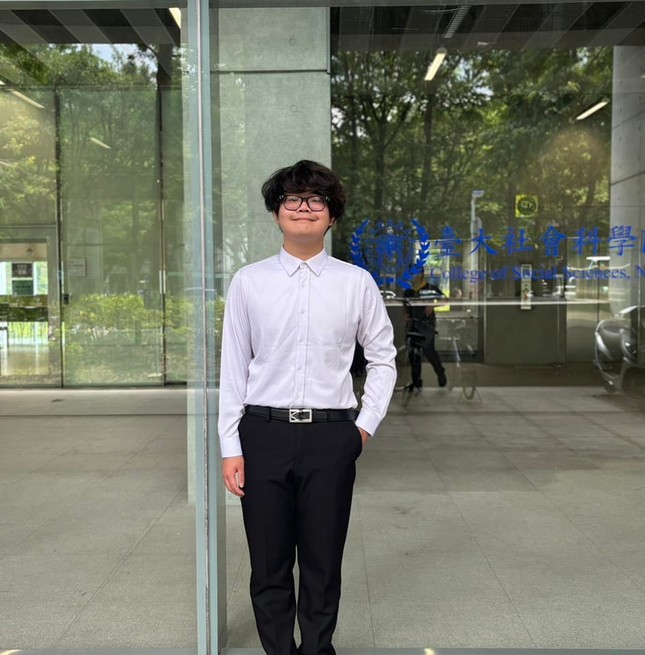
From there, he believes that what helped him overcome was reading and social factors. Khoa said: “I was really lucky to have access to a book that is comprehensive about the industry, deeply analyzes phenomena and schools systematically, but still pays attention to the reader's level to convey with an accessible language. In addition, during the learning process, it is necessary to interact with lecturers and peers or colleagues.”
According to Khoa, accessing knowledge through proactive connection, expanding networks, and participating in discussions will help students access larger sources of documents and resources that the "giants" have laid the foundation for. At the same time, communication will help the learning process not be closed, the environment for exchange and questioning will make the academic journey less scary and overwhelming.
Sharing about the differences between studying in Vietnam and abroad in terms of major, Khoa expressed: “I think there are two interesting differences: one is the academic culture and the other is the curriculum.”
During his time studying at the University of Social Sciences and Humanities (HCMC), Dang Khoa said he acquired a fairly solid culture and habit of studying and researching society, stemming from the school's tradition and extensive research expertise.
From there, the male student formed a system of research and thinking habits in social sciences. However, because the International Relations major is still new in Vietnam, the opportunity to access documents is still limited. This is a special feature of the Faculty's learning environment in Taiwan: the heavy burden of documents, and the culture that promotes reading and personal research.
The university’s extensive resources and investments in libraries and research databases give him access to a wider range of materials, and the school also encourages students to nominate books and journals to expand their reference material.
“In the past year, I have recommended 20 additional books and magazines for the school’s international politics research section. In addition, the school also has annual free book distribution events, from which I have found many foundational books that have helped me define the niche topics that I am interested in,” Dang Khoa added.
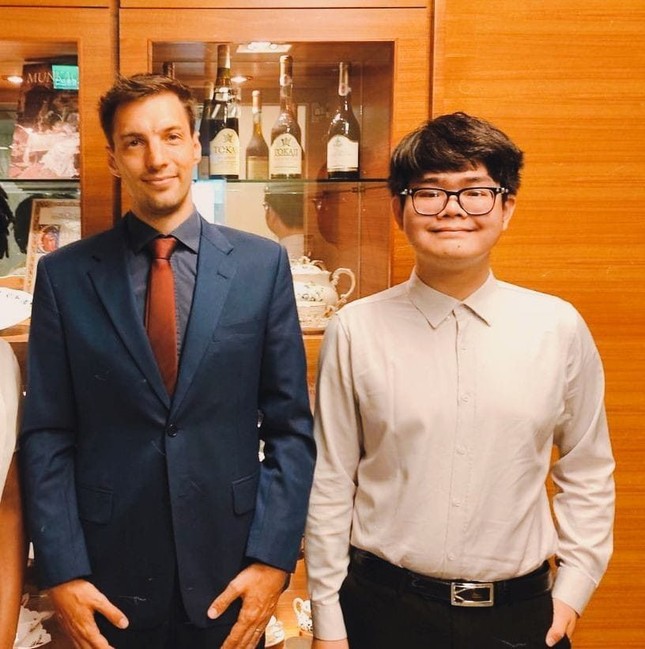
Second, the male international student is aware of the identity of each curriculum of the two schools. At the University of Science studying in Vietnam, the subjects will focus more on knowledge areas serving diplomatic work, practical foreign policy in the context of Vietnam.
In addition, the school will have credits to build soft skills to expand opportunities, as well as help students have flexibility in their future jobs and majors. Meanwhile, at universities in Taiwan, the program will focus more on political theory, international law and foreign policy with subjects specific to Taiwan. In particular, because the school belongs to the association of universities specializing in the EU (EUTW center, where Dang Khoa is currently interning), the program also has many modules closely related to issues of the European Union.
Sharing about his studies and research on European and Asia-Pacific security, Khoa affirmed that the EU has a great role and influence on international politics.
In addition, Asia-Pacific is a key region in international security, from economic potential to political power of the countries in this region. The movements, developments, or disputes of the region will have global significance in many aspects: food, supply, technology...
Therefore, in policy studies there exists a close interest in European and Asia-Pacific relations and security. One of the research areas that Dang Khoa has been interested in recently is the EU's interest in economic security with key actors in the East Asian bloc such as Japan, South Korea and Taiwan, and then expanding to other actors such as China, India, and ASEAN countries.
Internship at European research institute
Currently, Dang Khoa's internship center is the European Values Center for Security Policy - the first European research institute in Taiwan, interested in Taiwan's bilateral and multilateral foreign affairs with the EU and its member states. One of the pillars of the center is policy research.
“I have been interested in the center for a long time because the center's orientation and vision are directly related to the issues I am interested in. In addition, the experiences and tasks assigned to me give me the opportunity to apply my knowledge to practical research, build and develop my own skills, and conclude with publications for the center.
In addition, the center also has many activities connecting young talents, politicians, and researchers, thereby expanding personal connections and perspectives from within. From there, I can build a depth of expertise, research, and expand connections, with the goal of continuing on the future academic path in Europe," the male student revealed.
After completing the internship, Khoa said he will continue to study and research issues related to security policy in the future, with a particular focus on Europe and Southeast Asia.
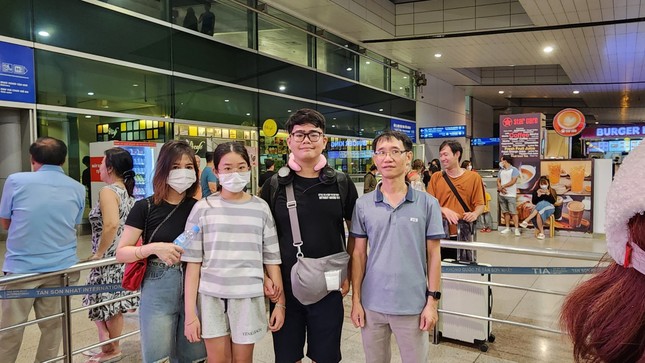
According to Dang Khoa's perspective, Vietnam is a country with great potential, a stable political economy, abundant resources, and especially a large young workforce that can supply global production needs. The government currently has many investment policies to improve skills and expertise in high-tech fields, ready to meet production requirements and receive FDI capital in the semiconductor and technology research fields, especially from large enterprises in the US, South Korea, and Taiwan.
These are the unique factors of Vietnam that few countries can fully meet. Through economic development, countries have more opportunities to interact, exchange, and promote cooperation, thereby promoting relations and enhancing common understanding. These activities play an important role in promoting security through economics, especially in the context of global population aging, trade competition, and political instability in the world today.
Sending a message to students who dream of studying abroad, Dang Khoa expressed: “One of the most important factors to pursue any major is your interest. You should express your personal wishes not only about the academic environment, but also your own direction. From there, your goals will become clear, helping you have more opportunities, lessons, and relationships in that country.”
Phuong Nga. Photo: NVCC (svvn.tienphong.vn)
Source: https://danviet.vn/cach-hoc-giup-nam-sinh-viet-tro-thanh-thu-khoa-toan-khoa-tai-dai-hoc-lau-doi-nhat-dai-loan-20240926110111236.htm



![[Photo] Prime Minister Pham Minh Chinh receives Swedish Minister of International Development Cooperation and Foreign Trade](https://vphoto.vietnam.vn/thumb/1200x675/vietnam/resource/IMAGE/2025/5/12/ae50d0bb57584fd1bbe1cd77d9ad6d97)
![[Photo] Prime Minister Pham Minh Chinh works with the Standing Committee of Thai Binh Provincial Party Committee](https://vphoto.vietnam.vn/thumb/1200x675/vietnam/resource/IMAGE/2025/5/12/f514ab990c544e05a446f77bba59c7d1)
![[Photo] Prime Minister Pham Minh Chinh starts construction of vital highway through Thai Binh and Nam Dinh](https://vphoto.vietnam.vn/thumb/1200x675/vietnam/resource/IMAGE/2025/5/12/52d98584ccea4c8dbf7c7f7484433af5)




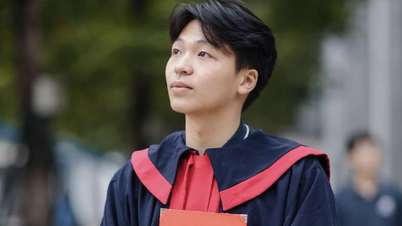

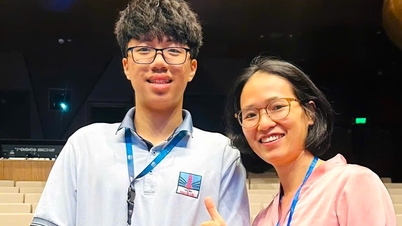
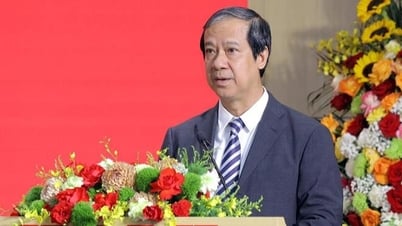

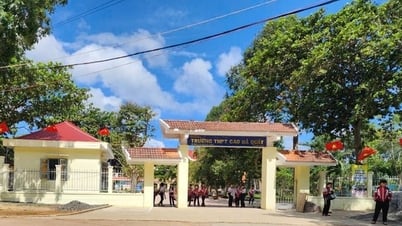
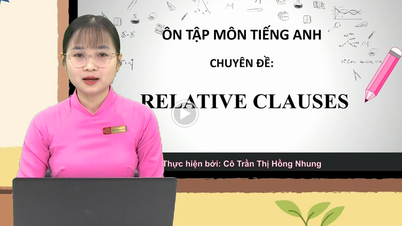
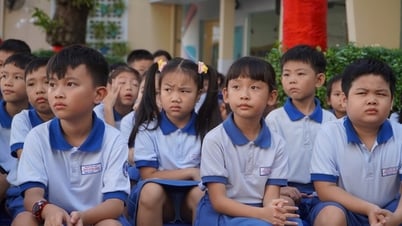
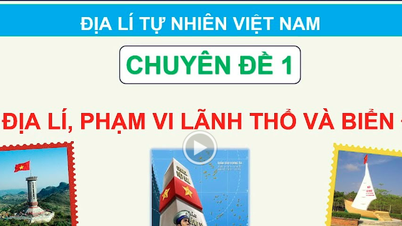





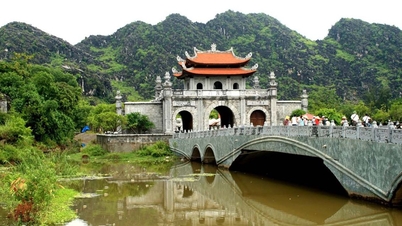

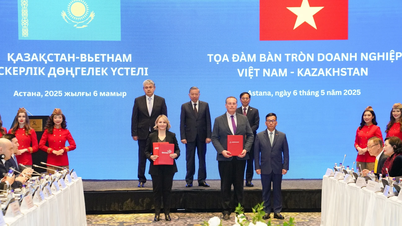

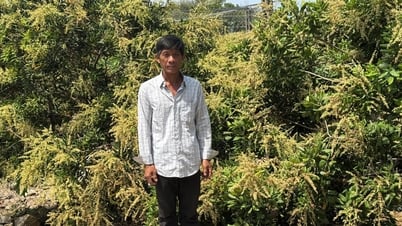















































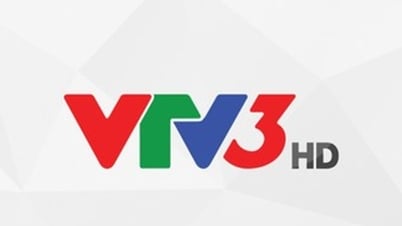
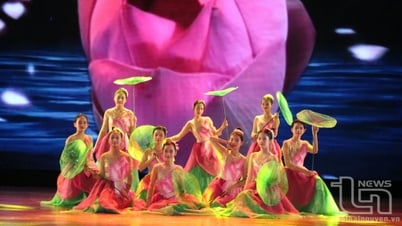

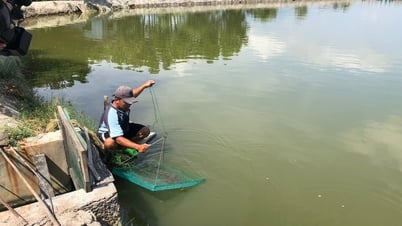

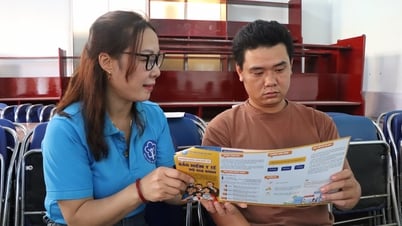
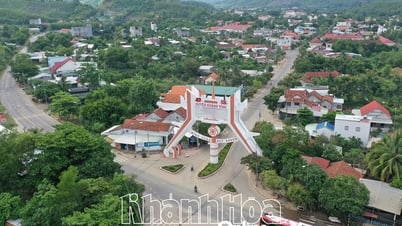











Comment (0)